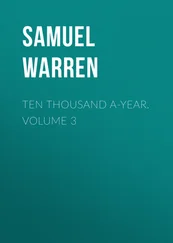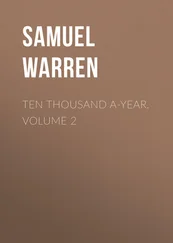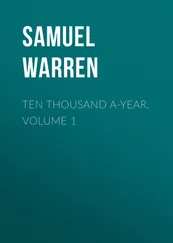“Shrimp’s a crustacean,” Charles said now and nodded.
“That’s right. It’s a prawn.” Phyllis tapped her glass with a long, ovaled nail.
The drink is no drink and Charles is no John — Jack’s father, John. John Shanley wouldn’t know her now, the woman he’d married, she who’d bronzed poolside for hours, who’d held her liquor and herself in mink stoles. She who’d said shit under her breath and goddamn and who’d believed in, what? Not God. You traded in your silver Cadillac for a maroon town car and you let your anger atrophy, but it is not gone.
“Jack, I believe you were about to tell us how work is going,” Charles said.
“It’s all right. Don’t know how much you’ve followed.”
“You tell us about it.” Charles dabbed a chop in mint jelly. “Any new developments?”
“Here and there.” His mother’s husband didn’t read the Times. His mother’s husband read the Chronicle. Still, there were always old friends someplace clipping newsprint with scissors from the junk drawer, dating the back and sending it, paper clipped and envelope tucked, out into the world. In case you missed it! Hope you and yours are well. Hope you and yours are still kicking. “Can’t please everyone, but, you try to please a few people.”
Phyllis was scraping her plate with a butter knife.
“Now how about those Yankees?” Charles said. “How are your Yankees doing?”
“I don’t know. I guess they’re doing well.”
Charles smiled. “Not what I’ve heard.”
—
The ride back existed in only two moments, the first as they came slow around a long bend, Charles up front saying, “We get some deer crossing, this area.” Jack knew that they did. Even in the dark this road was familiar to him. Then, the sudden light bouncing off the garage door, the blank page that had snuck up on him.
Inside, Charles got down on the living-room floor in front of the hearth.
“I don’t see why you need to bother with that thing, honey.” Phyllis sat on the sofa, stockinged feet slipped out of her soft brown loafers. “In high summer.”
“I’ve put on the AC, you won’t cook.” Charles clicked on the gas fire. “Jack should see how this works. Heck of a lot better than the logs you all used to use.”
“Much better,” Jack said. His mother and Charles had redone the whole fireplace and flue the first fall after they married. This was back eight or nine years ago — no, Jesus, eleven years: Kay had just been born. A chimney sweep had come and taken a steel brush to the insides, scrubbing off years of soot from the kindling they’d burned when Jack’s father was alive. Now they got the chimney sweep in annually. There was some reason for it, a fire that caught once when Charles was younger — Jack didn’t know the details — something like that had made him careful. One of those perfect-fit stories that make you say people aren’t all that hard to figure out. Maybe it’s true.
—
Phyllis went up to bed after the fire show, citing and reciting instructions for the clock in Jack’s bedroom, how it ran a little slow and how the alarm got set, and Jack went with his stepfather to the dim and woodsy study, Charles’s brown-Bible world, a cave apart from the fringed rugs and white wire baskets. When Jack lived there, it had been a sewing room and always empty. Now a gold-plated cross hung nailed to the wall, mixed with Charles’s diplomas, degrees in business. A years-old cactus sat inert on the windowsill.
From his shirt pocket Charles produced the key to a cabinet behind his desk, and from there he pulled a half-emptied bottle of port. The only fermented thing let into the house, residents aside. “So, take a seat.” The cork came out with a hollow pop, like an echo of the real sound. “It’s a wonderful thing, you know, having children.”
Jack stayed staring at the shelves, the embossed spines, discards from the local library. “How’s this?” he asked, holding up a Reagan biography, its edges woolly with dust.
“You may borrow it. I want to tell you, it is a very powerful thing for Phyllis, seeing you grown. A man, with a family of his own. Please.”
Jack took the glass, the measly pour of port, and sat.
“I know how proud she is of you. You should see the way she talks — about her son out in New York, how you’ve got yourself all this acclaim, about how there’s the prestige—”
“It isn’t—”
“Well all right, all right but that’s what she likes to say to people. She likes to tell them all that, and about the kids and how you’re married and how it’s two kids, a boy grandson and a girl grandchild, and she says if she died now, she’d be complete. That she has everything. Now, I know a lot of that has to do with how proud she is of you, this life she sees you leading.” Charles paused for a sip of garnet wine, but he must also have considered this a good breaking point, thought that even if the whole mountain of his argument was not yet visible, at least the mist had begun to clear.
For Jack, fog. “Thank you. That’s always, it’s nice to hear those things.”
“Here’s where we have our problem. Here’s where I’m a little worried. You say things are all right at home.”
“I do.”
“And work, your career.”
“Still do.” Jack followed Charles’s gaze to where it dropped on the desk between them, to the sand timer with the heavy marble bottom and brass casing. Phyllis used to keep it in the sun-room with what curios she deemed nautical. Called an hourglass, though it measured only thirty minutes. The upper half was empty now and for a bad moment Charles looked about to flip it over.
“Where I’m worried is where a grown man comes, flies, by himself — a married father — to stay with his mother on no notice—”
“I would have called—”
“—and behaves as though he were asked to come. And I don’t just mean that he’d been invited. I mean unhappy to be here. As though it were not a matter of his own free, human volition.”
“I thought we had a nice time tonight.” Of course it hadn’t been a nice time, but it was unlike Charles to say so, or to notice. Dinner had been grim because their lives were like that, grim. Jack had been, he thought, only a fly on the wall. “The restaurant was a good idea. Thank you for choosing that.”
“All right.” Charles took another sip of port, set the glass down and turned it. It was a nervous thing to do, again not what Jack would have expected of him. He was working toward something, the old man. “Jack, now, I’m not your father. Never was one. God didn’t bless my first wife and myself with children. Instead he saw fit to take her away, I’ll never know why. But he blessed you, and Deborah, and I don’t suppose it isn’t trying. In ways I can’t imagine.”
“Okeydokey, Charles.”
“I can’t tell you how to be a parent, except to tell you words from one wiser than I. ‘Train up a child in the way he should go, and when he is old, he will not depart from it.’ ”
Jack stood and turned back toward the bookcase. Books on theology, golf, the theology of golf. “That’s a lovely sentiment.” Rubbing his neck, he realized it hurt.
“You should be with your family.”
Jack spun around. “Why is it so hard to conceive that maybe I wanted to check up on her, see how she was doing? My own mother.”
“We seem to be missing each other.”
“It’s not like she hasn’t had her problems. It’s not like there couldn’t be any cause for concern.”
Charles pressed his fingertips together and touched them to his mouth. When he moved them away again, he said, “The thing I’m asking, Jack, is what do you need from her? What do you need that she can give you. Money?”
Читать дальше












